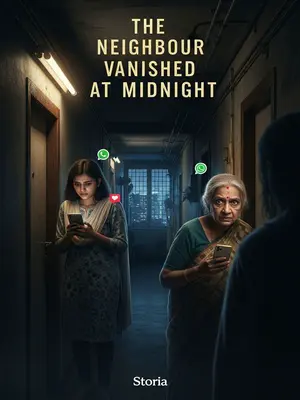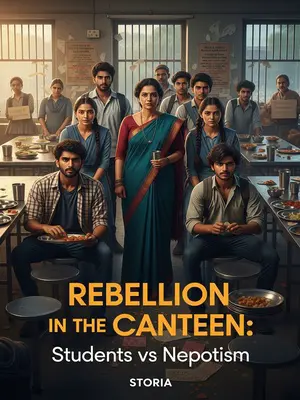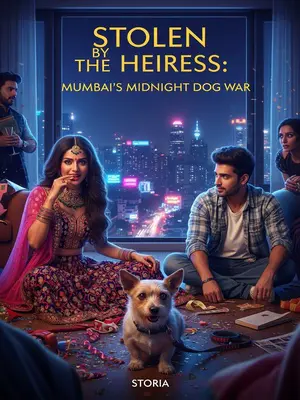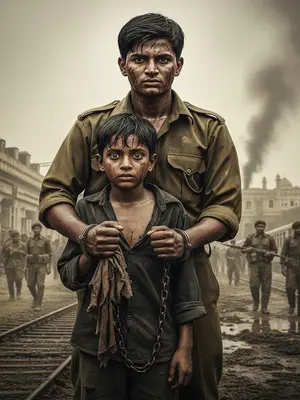Chapter 1: Quacks and Chaos
Next door, in Flat 302, lives a couple who fight like Holi colours on white bedsheets—loud, messy, impossible to ignore.
There’s something about the way their voices crash together, sparks flying with every sentence. In our colony, secrets are rare—our walls are thin as papad, so you hear everything. I take a sip of my evening chai, half hoping for silence, but there it goes again—another round of fireworks. The old aunty from flat 202 leans over her railing and declares, “Arrey beta, yeh dono toh full drama karte hain roz! Pata nahi kya chakkar hai.” Honestly, it’s like a never-ending festival over there, minus the mithai.
Every night at midnight, their howling keeps me wide awake.
I stuff my pillow over my head, but the voices still leak in, bouncing off the cracked paint on my ceiling. This isn’t your standard TV serial shouting—it’s full-on tamasha, like the climax of a Vishal Bhardwaj film. Just as I’m about to drift off, their voices erupt: a crescendo that would put even the neighbours across the lane to shame. Utensils clatter, a chair scrapes, sometimes a glass shatters. The stray dogs outside pause their barking, ears cocked, as if they’re betting on who’ll win tonight’s round.
I’ve tried everything—advice, cursing, even calling the cops—but nothing works.
I’ve used the classic Indian tricks—stuffed cotton in my ears, blasted Lata Mangeshkar at full volume, even thrown in a solid “Oye, soone de yaar!” for good measure. I’ve shouted, “Bhaiya, bas karo!” from my window and begged the building secretary to intervene. But these people? They care about no one’s sleep or sanity, not even their own.
So, I started hitting on his wife.
Look, I know it’s wrong—but when you’re running on no sleep, logic flies out the window. I’d spot her on the balcony, adjusting her dupatta, her tired eyes still sharp as ever. Sometimes, I’d offer a sly smile or tease, “Aapka chai banaun?” hoping to get a rise out of her. She just shook her head, lips twitching, but didn’t say a word. In our colony, these things become legend. Even the sabziwala grinned at me one day, whispering, “Bhaiya, risky game, haan!”
On Valentine’s Day, I went all out—slipped a note into a bouquet of roses:
That morning, the colony florist—Jignesh bhai—winked at me. “Love problem, na? Don’t worry, guaranteed results!” I laughed, handed him the note, and told him, “Bas, deliver it before lunch. And don’t tell anyone!”
"Has your husband found out about us?"
I could barely hold my laughter imagining her face as she’d read those words. The note was cheeky, shameless—just enough to stoke the fire.
That was the last straw. Her husband exploded.
I heard the commotion even before the bouquet was delivered. Breaking glass, raised voices, and then the wife’s raspy laughter slicing the air. Suddenly, silence. That loaded, storm-brewing silence. I peeped from my window and caught a glimpse of her reading the note—her eyebrow shot up, then she burst out laughing, loud enough to echo down the corridor. The husband stormed up and down, face red, muttering curses that would make even a Delhi auto-wallah blush.













